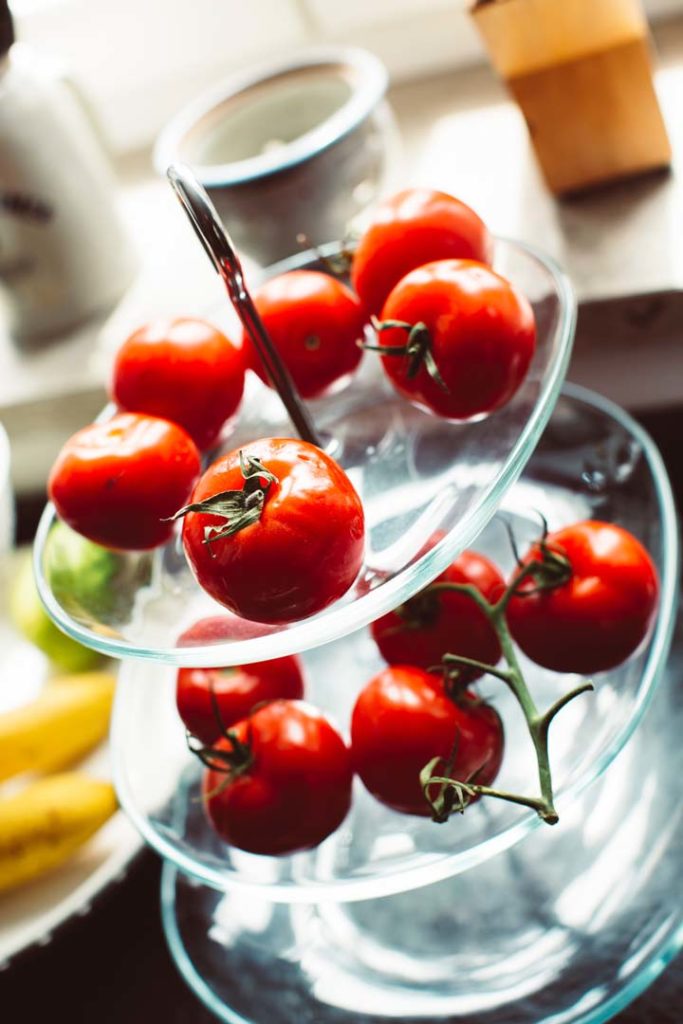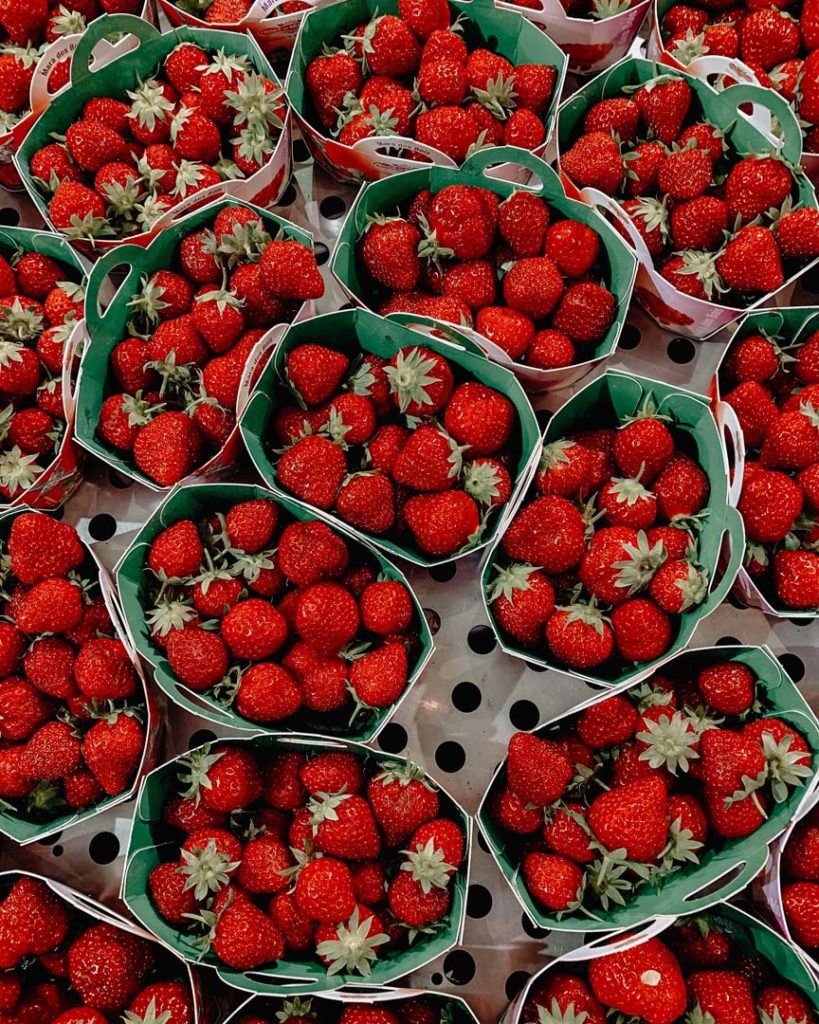Turnips: contain two goitrogenic substances, progoitrin and gluconasturtin, which can interfere with the thyroid gland’s ability to make its hormones. Although moderate consumption of goitrogens is not a hazard for healthy people, they can promote development of a goiter (an enlarged thyroid) in persons with thyroid disease.

Tomato: contains small quantities of a toxic substance known as solanine that may trigger headaches in susceptible people. They are also a relatively common cause of allergies. An unidentified substance in tomatoes and tomato-based products can cause acid reflux, leading to indigestion and heartburn. Individuals who often have digestive upsets should try eliminating tomatoes for 2 to 3 weeks to see if there is any improvement.
Strawberries, Raspberries, Spinach, and Rhubarb: These contain oxalic acid, which can aggravate kidney and bladder stones in susceptible people and reduce body’s ability to absorb iron and calcium.
Raspberries: contain a natural salicylate that can cause an allergic reaction in aspirin sensitive people.

The seeds from fruits such as Apple, Apricot, and Quinces: contain amygdalin, a compound that turns into Hydrogen Cyanide in the stomach. Eating large amounts of seeds can result in cyanide poisoning.
Potatoes: Avoid potatoes with a green tint to the skin and remove any sprouts; they will taste bitter and may contain solanine, a toxic substance that can cause diarrhea, cramps, and fatigue.
Plums, Peaches, Apricots, and Cherries: These fruits may produce allergic reaction in individuals with confirmed allergies to apricots, almonds, peaches, and cherries. People who are allergic to aspirin may also encounter problems after they have eaten plums or peaches as they contain salicylates. The pits of plums, peaches and apricots contain a compound called amygdalin. When consumed in large amounts, amygdalin breaks down into hydrogen cyanide, a poison.
Horseradish: Very high doses of horseradish can cause vomiting or excessive sweating. Avoid if you have hypothyroidism.
Turmeric: Should be avoided by persons with symptoms from gallstones.
© Copyright – Hector Sectzer

















